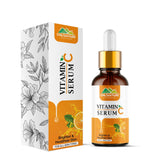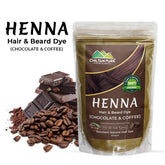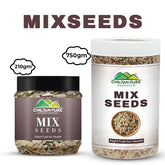Health Benefits of Walnut Oil:
Walnuts and its oil is excellent sources of omega-3 fatty acids. Multiple researches on the health benefits of walnuts has focused on consumption of the nut itself, although interest in walnut oil has grown over the last decade. The health benefits of walnuts and walnut oil are similar if the oil is unrefined, fresh (6 month shelf life), and uncooked. However, the serving size of walnut oil is less than the amount of walnuts needed to get the same nutritional benefit.
For example: Walnuts are rich in phytonutrients and are an excellent source of selenium, phosphorous, magnesium, zinc, iron, and calcium.

Nutritional Gift:
Walnuts or Walnut oil provide hefty levels of Vitamins B-1, B-2, and B-3, coupled with Vitamin-E and niacin.
These Vitamin - Nutrients are significant source of Vitamin C. Over the last 70 years, numerous other studies evaluated the effects of Walnut and Walnut oil consumption on mortality, disease prevalence, and disease risk factors have been performed. Now it has known well that eating walnuts on a regular basis definitely results to numerous health benefits. The most significant of which is reduction in the risk of Coronary Heart disease. Adding walnuts to your daily diet will certainly help you to maintain healthful body balance.
Consumption of walnuts or walnut oil results to lower you total cholesterol level, LDL (bad cholesterol) and the ratio of LDL to HDL (good cholesterol). Furthermore, regular walnut oil consumption reduced triglyceride levels.
“Supportive research shows that eating 1.5 ounces per day of walnuts, as part of low saturated fat and low cholesterol diet may reduce the risk of coronary heart disease.”
 The cardio-protective benefits of walnut oil are primarily due to the high concentration of alpha-linolenic acid (ALA), which is an omega-3 fatty acid that ultimately is converted to eicosapentaenoic acid (EPA), and docosahexaenoic acid (DHA), and omega-3 fatty acids that are easily utilized by the body. One tablespoon of walnut oil provides 1.4 grams of ALA. Men require 1.6 grams and women 1.1 grams of ALA per day. Walnuts differ from other nuts because they primarily consist of omega-3 fatty acids whereas monounsaturated fats are found in higher levels in most other types of nuts.
The cardio-protective benefits of walnut oil are primarily due to the high concentration of alpha-linolenic acid (ALA), which is an omega-3 fatty acid that ultimately is converted to eicosapentaenoic acid (EPA), and docosahexaenoic acid (DHA), and omega-3 fatty acids that are easily utilized by the body. One tablespoon of walnut oil provides 1.4 grams of ALA. Men require 1.6 grams and women 1.1 grams of ALA per day. Walnuts differ from other nuts because they primarily consist of omega-3 fatty acids whereas monounsaturated fats are found in higher levels in most other types of nuts.
What Recipes or Things Work for Walnut Oil?
There are several very basic things that are great to do with this oil (or other speciality oils). Just make sure you gear them towards the dish that you are making. For instance, with pumpkin seed oil, you would want to make sure you used it with something that pumpkin flavouring would complement. Here are some ideas:
- Mix the oil with cream or dry sherry and use to poach chicken or fish.
- Make a dressing of sherry or champagne vinegar, garlic, and mustard.
- Use a little bit to toss with pasta noodles that have been cooked or drained—wonderful flavour!
- Use a dab of walnut oil to grease pans or ramekins.
- Drizzle some walnut oil on fruits and then grill—add to ice cream.
- Add a few drops to potatoes, sweet potatoes, parsnips, or carrots.
- Brush on fish or poultry before grilling, and it will add a wonderful flavour to the entrée.

 The cardio-protective benefits of walnut oil are primarily due to the high concentration of alpha-linolenic acid (ALA), which is an omega-3 fatty acid that ultimately is converted to eicosapentaenoic acid (EPA), and docosahexaenoic acid (DHA), and omega-3 fatty acids that are easily utilized by the body. One tablespoon of walnut oil provides 1.4 grams of ALA. Men require 1.6 grams and women 1.1 grams of ALA per day. Walnuts differ from other nuts because they primarily consist of omega-3 fatty acids whereas monounsaturated fats are found in higher levels in most other types of nuts.
The cardio-protective benefits of walnut oil are primarily due to the high concentration of alpha-linolenic acid (ALA), which is an omega-3 fatty acid that ultimately is converted to eicosapentaenoic acid (EPA), and docosahexaenoic acid (DHA), and omega-3 fatty acids that are easily utilized by the body. One tablespoon of walnut oil provides 1.4 grams of ALA. Men require 1.6 grams and women 1.1 grams of ALA per day. Walnuts differ from other nuts because they primarily consist of omega-3 fatty acids whereas monounsaturated fats are found in higher levels in most other types of nuts.




![Red Onion Oil 🧅 Reduces Hair Fall & Accelerates Hair Regrowth [پیاز کا تیل].. Trending.... 🔥 - ChiltanPure](http://chiltanpure.com/cdn/shop/products/red-onion-oil-reduces-hair-fall-amp-accelerates-hair-regrowth-piaz-ka-til-trending-394813_165x.jpg?v=1707464619)
![Red Onion Oil 🧅 Reduces Hair Fall & Accelerates Hair Regrowth [پیاز کا تیل].. Trending.... 🔥 - ChiltanPure](http://chiltanpure.com/cdn/shop/products/red-onion-oil-reduces-hair-fall-amp-accelerates-hair-regrowth-piaz-ka-til-trending-329640_165x.jpg?v=1708127491)















Leave a comment
Please note, comments need to be approved before they are published.